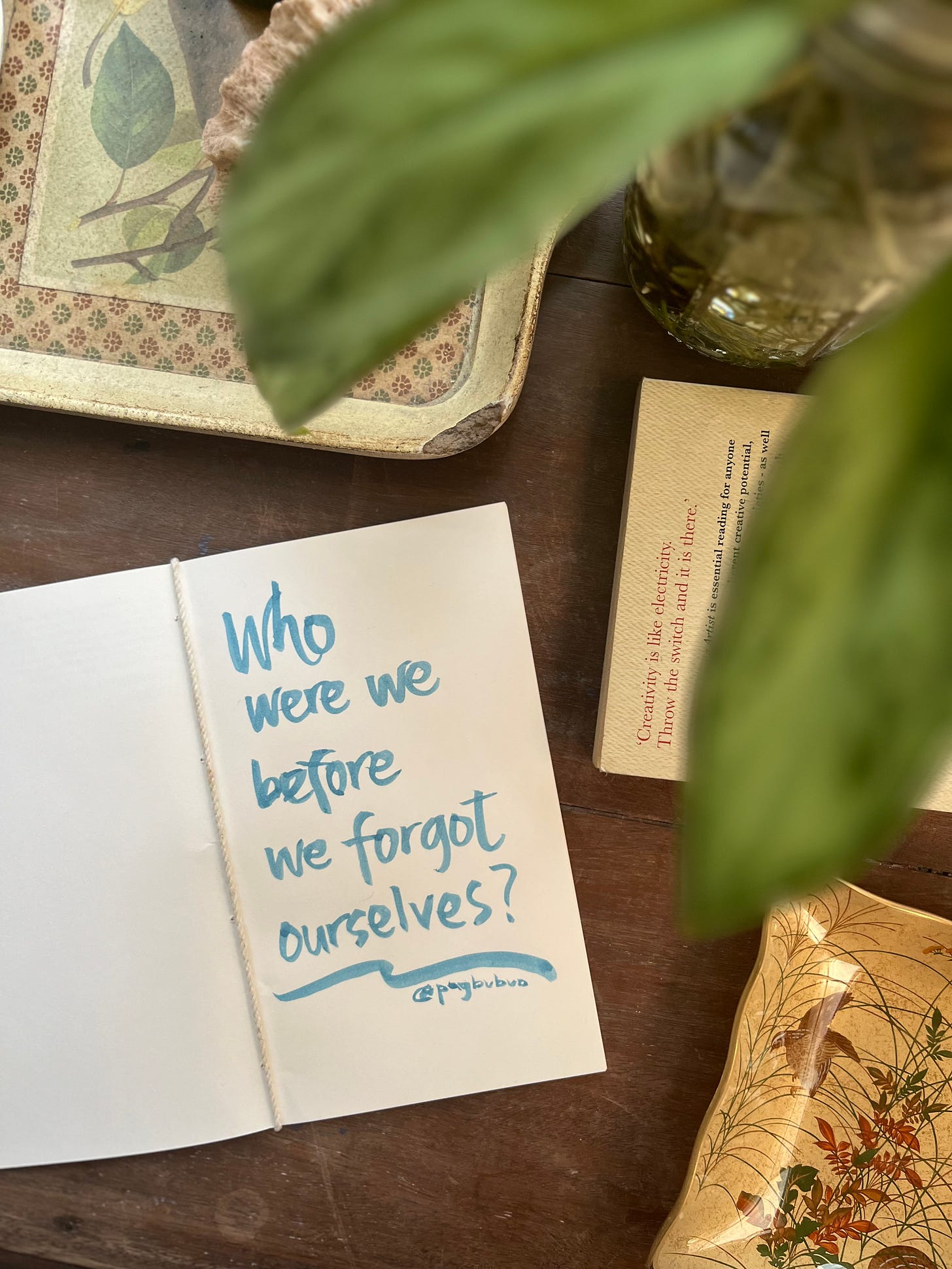Death Before Breakfast: Life-giving conversations on death
Fewer things are more certain than our inevitable demise, so why don't we have more conversations about death so we can live more intentionally?
From "A Litany for Survival" by Audre Lorde
And when the sun rises we are afraid
it might not remain
when the sun sets we are afraid
it might not rise in the morning
when our stomachs are full we are afraid
of indigestion
when our stomachs are empty we are afraid
we may never eat again
when we are loved we are afraid
love will vanish
when we are alone we are afraid
love will never return
and when we speak we are afraid
our words will not be heard
nor welcomed
but when we are silent
we are still afraid
So it is better to speak
remembering
we were never meant to survive.
On the 6-hour bus ride to La Union the other week, I along with all the other passengers, including a ~5-year-old girl, were subjected to a bloody horrible horror movie, followed by other action movies filled with car crashes and killing — an ironic backdrop for a deep conversation on death that I was having with my friend Kar while on a speeding bus.
That was just one of several conversations on death I’ve synchronicitously had with different friends (and even my mother!) lately, and I’d even wanted to organize a Death Over Dinner party in my home at one point.1
Fewer things are more certain than our inevitable demise, so why don't we have more conversations about death so we can live more intentionally?
Dear Death
While other little girls daydreamed about their weddings, I was planning the logistics of my funeral — what I’d be wearing, where I’d be, what songs would be on my playlist. When I was about 10 years old maybe, I was convinced I would die at the age of 13, and so I prepared for my passing by writing letters to friends and loved ones. I think that might be a good idea to revisit now.
This may sound crazy to you, but what feels crazier to me that we avoid talking about death for most of our lives until (or even when) it smacks us in the face.
Veronika Decides To Die by Paulo Coelho was also a insightful book for me in my high school or university days. The story revolves around Veronika, a young woman who attempts suicide, and wakes up to find herself in a mental institution where she learns she has a limited time to live due to heart damage. This prompts Veronika to confront questions on life and death, and ultimately spurs her to live more authentically and intentionally.
The awareness of death makes life worth living. That was a sentiment it left with me.
When I die…
We all have a need to matter. I’m probably not alone in the desire to live on in people’s memories. Even for “ordinary moments” I spent with them. Or fleeting conversations with single-serving friends (think ichigo ichie).
Recently, I’ve been having Ugnayan sessions with my mother, which is surprising to her friends and mine. I feel fortunate to have a relationship with my mother that allows for these conversations, even if it’s not our default way of operating.
Part of me does this to:
Commit to a journaling practice together (and be each other’s accountability buddies in the process)
Connect more meaningfully with each other (because admittedly, it would be sad if I only used Ugnayan Cards with friends and strangers and never with people in my own home)
I know that studies have cited the value of connection2 in health and wellbeing, especially for dementia, which my mother mentions often enough for me to know that she fears it.
When I think about the inevitability of her death or mine, I want to be have spent some moments in my life to create memories of this mundane but meaningful practice with her.
More than that, I also use this as an opportunity to think more intentionally about our approaching death (we’re all dying a little bit everyday), and therefore, how we want to live.
How might we bring meaning to our days and to the lives of others?
I’ve come to realize how some of the questions we’ve journaled about and shared with each other are so relevant to help us check-in if we’re leading lives we would peacefully die with. These include:
From the Laya/Freedom theme (because we don’t want to reach the end of our lives realizing we were inauthentic to our true selves)
What do you need to give attention to in order to feel fully free?
From the Pasasalamat/Gratitude theme (because not taking things for granted helps us savor life)
What is one thing that doesn’t cost anything and never fails to make you happy?
From the Sadya/Intention theme (because how we show up in our days shapes how people remember us in our death)
What do you want people to remember about you in your passing?
If you knew that in one year you would die suddenly, would you change anything about the way you are living now?
From the Daloy/Flow theme
Where do you notice the flow of your thoughts wandering most often: past, present or future? (I share part of my reflections to this below.)
Anticipating Death and Living Intentionally
It can be easy to conclude that living in the present is what can help us engage fully in life in the here and now. However, after further thought, I realize there is value in having our thoughts wander to future impacts and past lessons in order to live more fully in the present.
Sure, we may bring in trauma, biases, and hurt from the past, as well as anticipatory grief of what we’ve yet to lose, and yet all of these also contribute to the motivation to live with greater intention in the now, if we choose to listen to that inner wisdom and intuition.

Knowing the temporal nature of nature’s gifts and our lives makes us more present to the here and now.
It’s a privilege for me to spend the time pondering on these things, and it’s a purposeful choice that adds meaning to my days. I hope you welcome these reflections and conversations in your life too.
Here’s to appreciating the aesthetics of life by not anesthetizing ourselves from death.
I leave you with an excerpt from the talk of BJ Miller, a three-time amputee that became a physician specializing in palliative care.
So, since dying is a necessary part of life, what might we create with this fact?
By "play" I am in no way suggesting we take a light approach to dying or that we mandate any particular way of dying. There are mountains of sorrow that cannot move, and one way or another, we will all kneel there. Rather, I am asking that we make space -- physical, psychic room, to allow life to play itself all the way out -- so that rather than just getting out of the way, aging and dying can become a process of crescendo through to the end.
We can't solve for death. But we can design towards it.
Parts of me died early on, and that's something we can all say one way or another. I got to redesign my life around this fact, and I tell you it has been a liberation to realize you can always find a shock of beauty or meaning in what life you have left, like that snowball lasting for a perfect moment, all the while melting away.
If we love such moments ferociously, then maybe we can learn to live well -- not in spite of death, but because of it. Let death be what takes us, not lack of imagination.
- BJ Miller
Death Over Dinner is a project started in 2013, when instigators Michael Hebb and Scott Macklin learned that 75% of Americans want to die at home, while only 25% of them actually do, and that how we end our lives is the most important and costly conversation America is not having. They then realized that guided conversations among loved ones, friends, and even strangers could change these numbers, and more importantly, how we approach death, and in the process, how we might approach life.
Learn more about it in this short video:
Read more on the value of connection and how you can cultivate more of it in your life in the post below.




